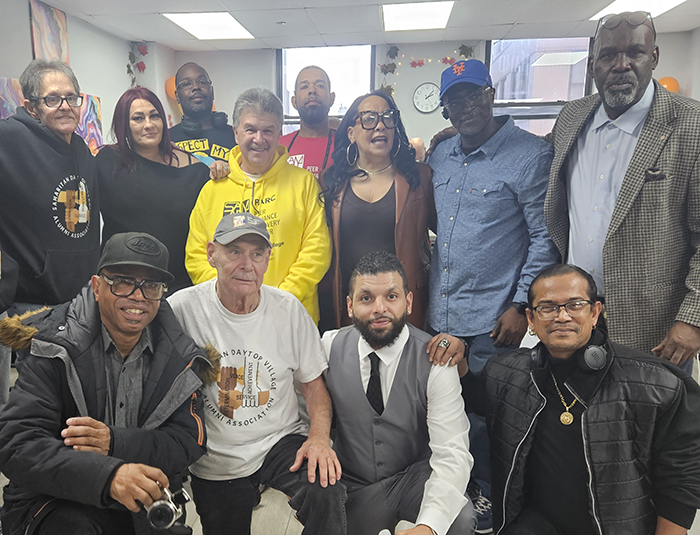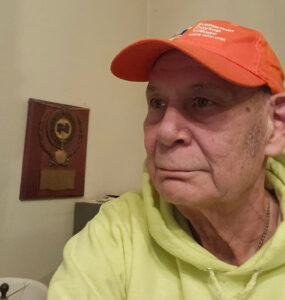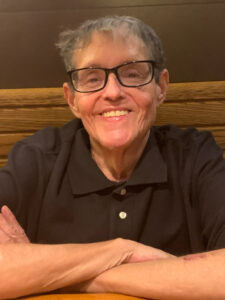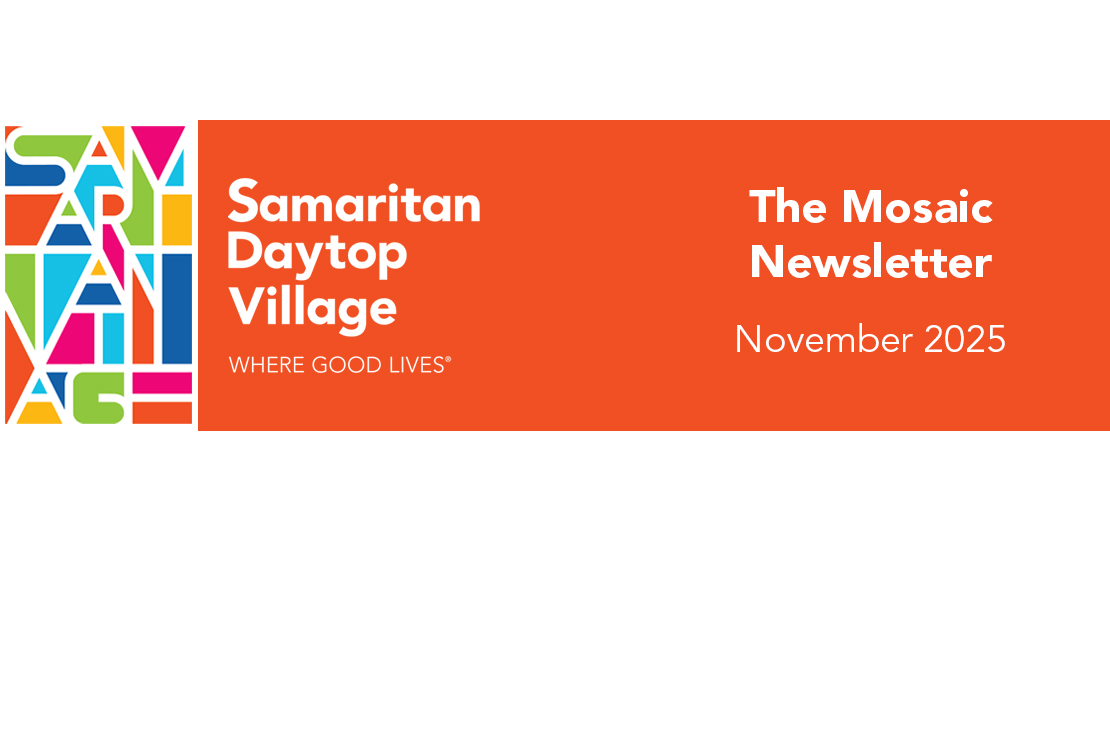Two Queens natives devote their lives to helping others on the road to addiction recovery

As published on QNS.com, February 13, 2025
Link to edition: https://qns.com/2025/02/two-queens-natives-help-others-road-to-recovery/

Weiss: third from the left in the back row. Tanner: second from the left in the front row, kneeling. A group photo of the Alumni Fall Gathering with the Alumni Association, Samaritan Daytop Village staff, and Samaritan’s PARC Queens program (the Peer Alliance Recovery Center in Queens).
Courtesy of Samaritan Daytop Village.
Two Queens natives devote their lives to helping others on the road to addiction recovery
By Athena Dawson
Two seniors with Queens roots have dedicated their lives to those on the road to substance [use] recovery.
David Tanner, 74, and Ira Weiss, 68, dutifully host weekly meetings bringing together dozens of people in recovery from substance use disorders. Attendees range from people currently in Samaritan Daytop Village’s 24/7 treatment programs to those decades into their recovery journey. Tanner is a former Laurelton resident, and Weiss has roots in Flushing.
The meetings are part of a timely tradition for alumni of the Queens-based nonprofit Samaritan Daytop Village’s addiction treatment program, where Tanner and Weiss received treatment over 50 years ago.

David Tanner is the president of Samaritan Daytop Village’s Alumni Association.
Courtesy of David Tanner.
Samaritan Daytop Village, headquartered in Briarwood, is a collection of 60+ facilities throughout New York City, Long Island, and the lower Hudson Valley that provide substance use disorder treatment, health and mental health care, transitional and supportive housing, peer-assisted recovery, and more. Father Damian Pitcaithly founded Samaritan Village, originally known as the Astoria Consultation Center, in 1960 at the Episcopalian church in Queens. The center offered drug and alcohol counseling services to adolescents.
The agency eventually expanded its reach throughout New York City, and by 1969, it opened its first residential program, a 12-bed facility in Richmond Hill. In 1974, the agency changed its name to Samaritan Village. In October 2015, Samaritan Village merged with Daytop Village to become Samaritan Daytop Village
Tanner and Weiss now lead Samaritan Daytop Village’s Alumni Association, a volunteer effort to build a community for people in recovery.
Weiss, the vice president, joined the alumni association roughly five years ago and emphasized the group’s mission of bringing the message of recovery to those still in residential treatment. “ We bring the message of recovery, that people like myself who sat in the chairs can recover from addiction and lead a productive lifestyle,” Weiss said.
Weiss is a 1978 graduate of the former Daytop Village program. After graduating from the treatment program in his early twenties, Weiss was inspired to help others with similar recovery stories. He enrolled in a staff training program and has worked in the field of substance abuse and addiction for over 30 years.
Tanner, who has served as president of the alumni association for the past six years, said alumni make an effort to have a physical presence across Samaritan Daytop Village’s 11 residential substance use disorder treatment sites. Over 600 people are enrolled on a Facebook page for the alumni association, with about 51 members who are active in good standing, pay their dues, and participate in subcommittees. The alumni association also conducts four quarterly events every year for residents of the facilities to meet each other, engage in activities, and fellowship.

Ira Weiss is the vice president of the Samaritan Daytop Village Alumni Association.
The alumni association hosts weekly Wednesday night Zoom meetings consisting of current residents of the facilities, alumni, and guest speakers. “We’ve gotten people from all over the country to come in and share their stories just to show hope and inspiration to the new brothers and sisters who are in treatment now,” Weiss said.
The alumni association also provides scholarships for Samaritan Daytop Village graduates who want to participate in recovery coach training, which is a job function that allows individuals to enter the recovery field. “Everything we do is to further the endeavor of the person who is receiving treatment to have a fruitful and healthy, happy lifestyle. The main idea is to help them build a network that they can rely on and support,” Tanner said.
Tanner’s story with Samaritan Daytop Village began in 1968 when he entered treatment at 18. Since then, he’s never left the organization. Tanner was one of the founding residents of the Samaritan Village therapeutic community, which was then called the Samaritan Halfway Society. “It’s just a debt that I owe to the founder of Samaritan who fished me out of Creedmore State Hospital where there was no place else for us to go. He started therapeutic communities in New York in the late 60s, and I was one of the original people, and I’ve just been paying this debt back as best as I can over the period of fifty-something years,” he said.
Tanner said he had a years-long relationship with the founder of Samaritan Village.
He recalled how, after finishing treatment, he would meet with Father Pitcaithly for weekly check-ins spanning years, and after Pitcaithly retired, he would continue to meet with him every Sunday until he fell ill. Tanner eventually took a leave of absence and moved in with Pitcaithly and cared for him until he passed away. “That’s a special relationship that I had with the founder… because of it, I’ve just been paying back the debt to the man that saved my life, Tanner said. “Over the years, I came to understand the deep spiritual well that we spring from just from the exposure to it, and I modeled myself in a way after what I learned from him and tried to, in some way, mimic that and continue to carry that same spiritual message back into the facilities.”
With treatment times being much shorter than in the past, averaging about three months, Weiss says there is an emphasis on those in recovery to get involved in recovery as soon as possible. The weekly meetings, which include guest speakers, are seen as vital to those in recovery. “What we seen is when people come out of these 12 or 13 residential treatment facilities, they don’t have a good aftercare plan; it can be a horrible ending, so we try to incorporate the alumni as best as we can in a person’s aftercare treatment,” Weiss said.
Tanner explained that for those who struggle with addiction, having a peer group and network is vital to recovery. “It’s a sharing of feelings, experiences, emotions, and information, doing things together and working as a team, and all of that creates an atmosphere where recovery can flourish,” he said.
For more information about Samaritan Daytop Village’s programs, services, or to get involved in the alumni association, visit their official website at www.samaritanvillage.org. You can also reach out to Samaritan Daytop Village by phone at (718) 206-2000 or call its Central Admissions line at (855) 322-4357 (HELP).


